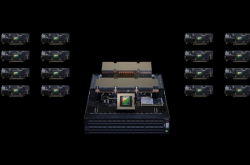"Honor's 'Autonomous Driving-Grade' AIOS is Here! Is It a Pipe Dream or a Real Powerhouse?
![]() 10/24 2024
10/24 2024
![]() 622
622
The mobile AI system has officially entered the era of 'autonomous driving'.
On October 23, Honor held the MagicOS 9.0 launch event and developer conference in Beijing, centered around a single theme: making mobile AI suitable for everyone. LeiTech was invited to attend this milestone event and witnessed the dawn of the next era for AIOS.

(Image source: LeiTech on-site photography)
AI smartphones have become the most popular concept today. On a small mobile device, they can help us easily refine and edit texts, quickly remove bystanders, and leave the cleanest scenes in tourist photos. If AI smartphones can only do these, they can only be considered L1 or L2 level AI phones.
However, the newly launched MagicOS 9.0 elevates AI smartphones to L3 level. What is an L3 AI smartphone? With a simple command, your phone can order a drink tailored to your current needs, based on your habits, preferences, and location. This is what an L3 AI smartphone and AI system offer, making 'hands-free' more than just a slogan.
This is just the tip of the iceberg among the numerous upgrades in MagicOS 9.0.
With 'Autonomous Driving,' MagicOS Becomes a 'Veteran Driver'?
We are no stranger to the concept of autonomous driving. The Ministry of Industry and Information Technology has released the 'Vehicle Driving Automation' classification standard, dividing autonomous driving capabilities into six levels, with L0 being fully manual and L5 being fully dependent on system control. Honor, in collaboration with the China Academy of Information and Communications Technology, has released the 'Terminal Intelligence Classification Research Report,' which draws on the concept of autonomous driving and classifies AI smartphone intelligence into five levels from L1 to L5. The MagicOS 8.0, released earlier this year, is at L2 level.
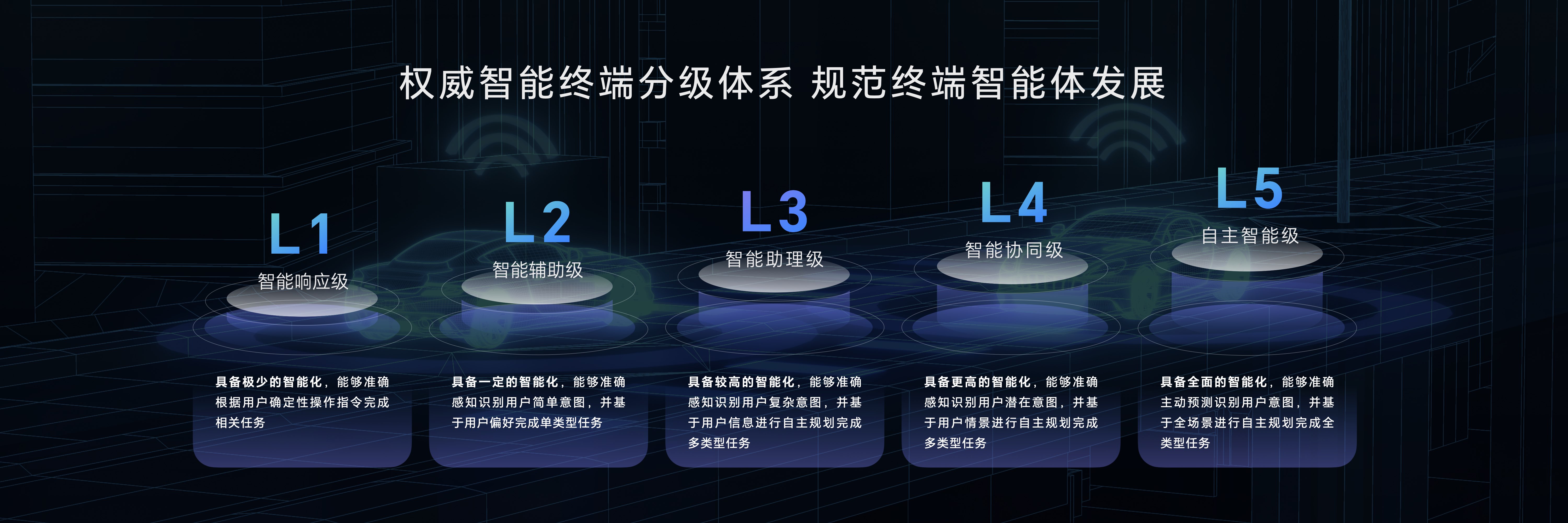
(Image source: Honor)
MagicOS 9.0 jumps straight to L3 AI level, leading the industry. How did it achieve this?
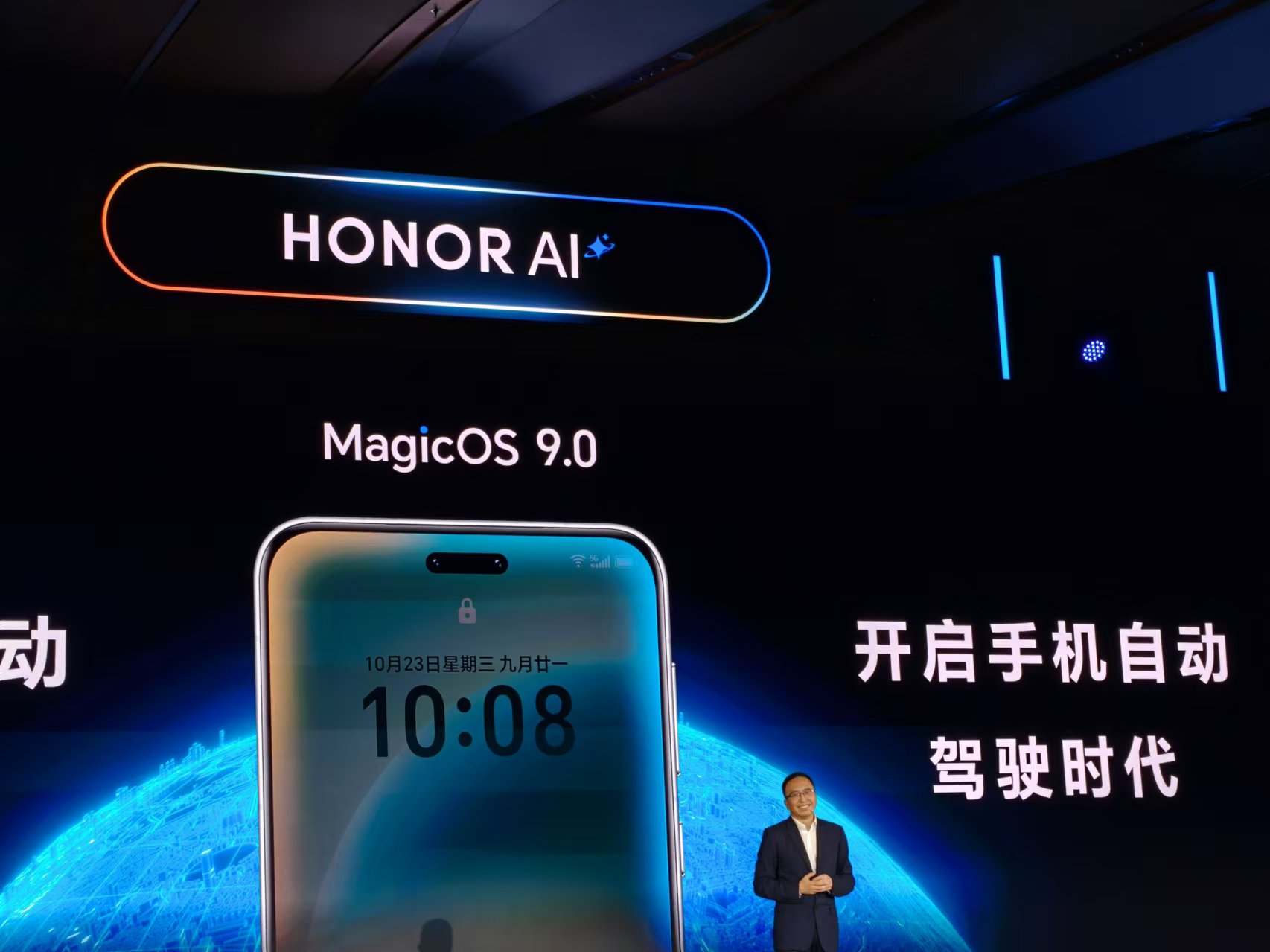
(Image source: LeiTech on-site photography)
The Magic Large Model family welcomes new members, including large language models, large image models, large voice models, and multi-modal large models, all based on the four-layer AI architecture benchmark of MagicOS to assist in the phone's perception services. More importantly, the Magic Large Models consistently adhere to a cloud-device integration solution, effectively balancing efficiency and security.
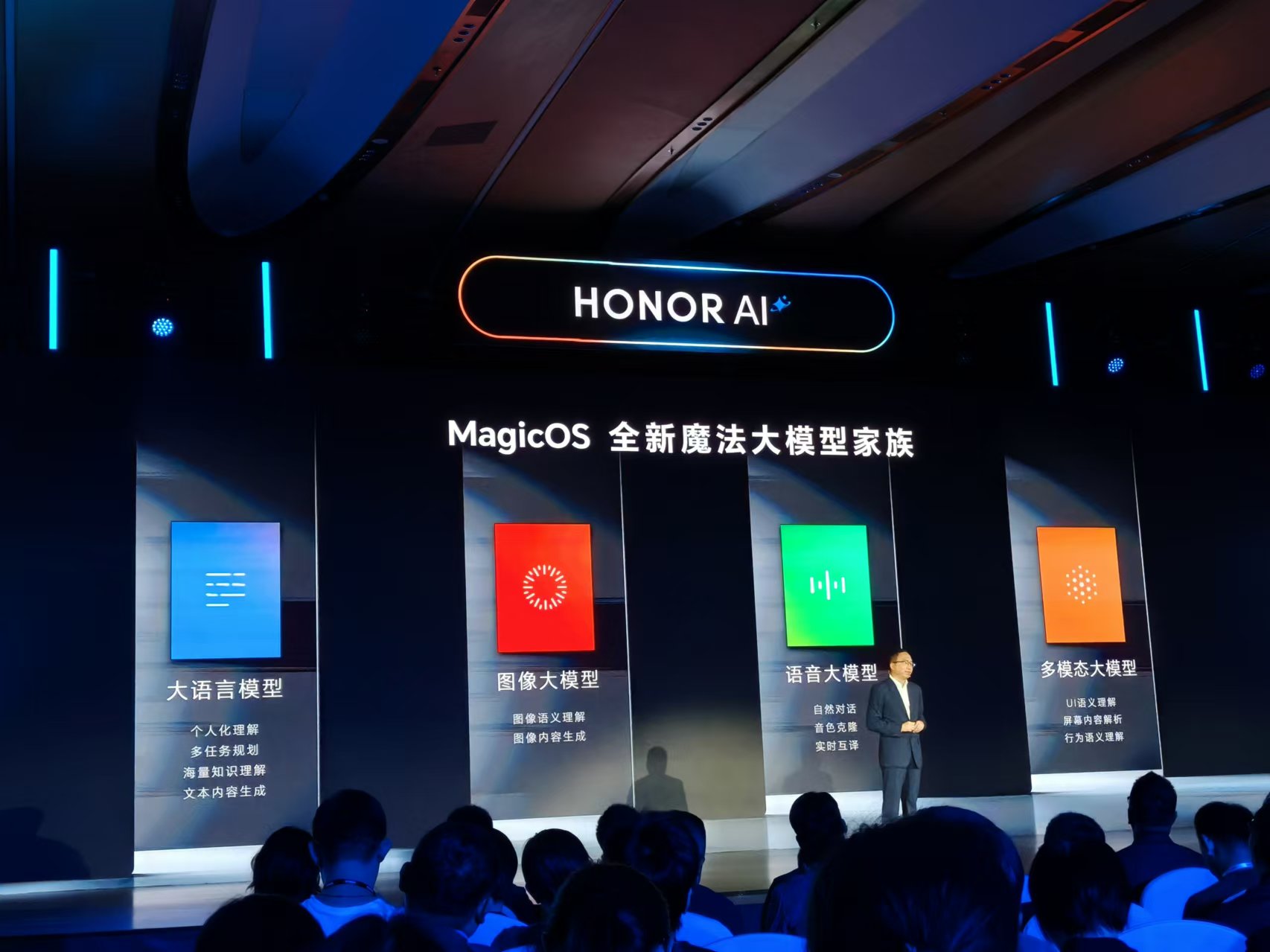
(Image source: LeiTech on-site photography)
To ensure a consistent high-quality experience across all devices, MagicOS 9.0 offers two new large image models with 5 million and 40 million parameters, a 3 billion parameter language model, a 1 billion multi-modal large model, and a 15 million parameter language model. Depending on the device's edge-side performance, they are integrated into various models in different proportions. For example, the Magic flagship series comes equipped with all these large models, while the 40 million parameter language model is only available for mid-to-high-end series devices.
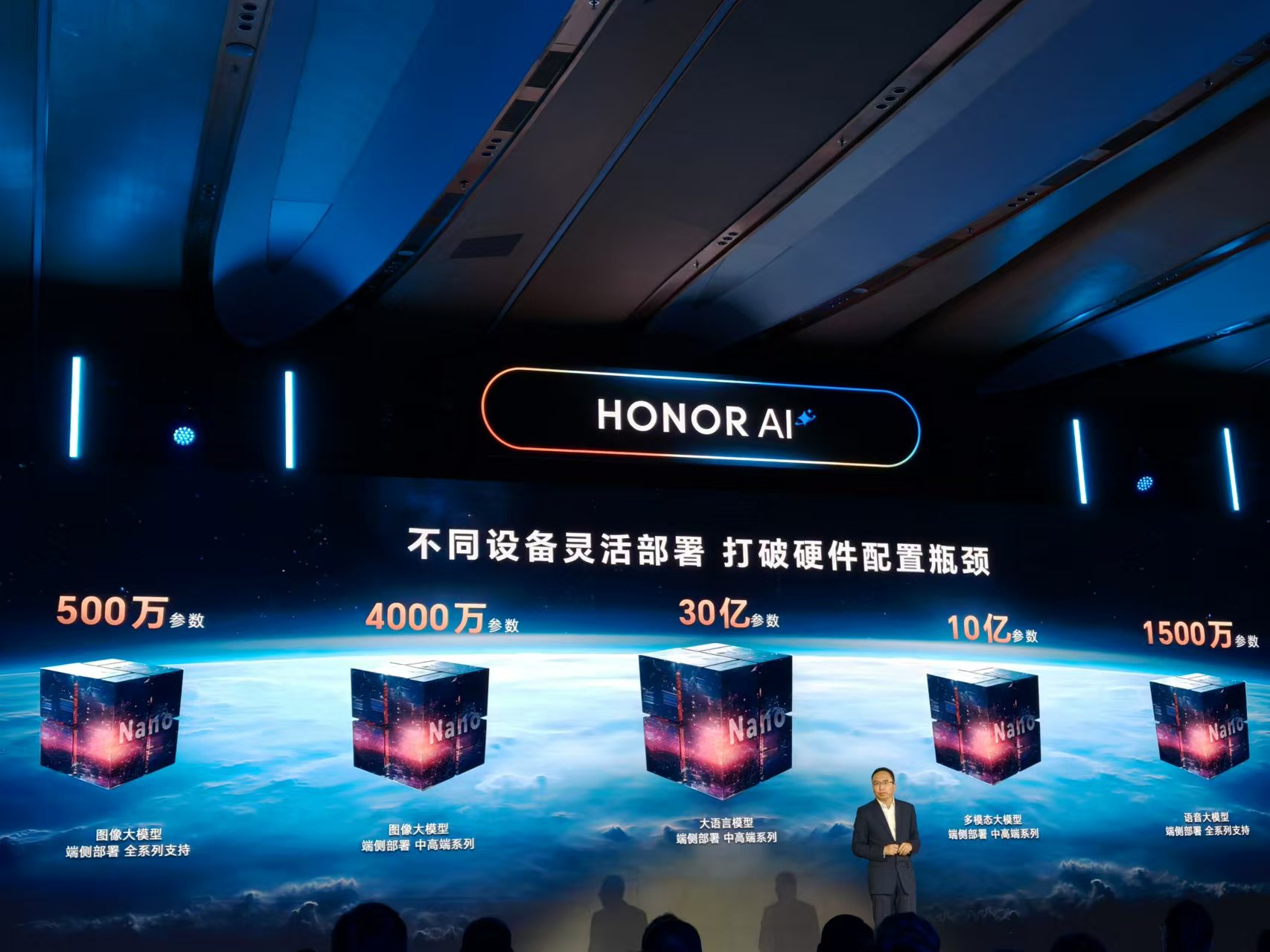
(Image source: LeiTech on-site photography)
There are two key upgrades: first, the 3 billion parameter language model achieves a 77% improvement in loading speed, a 500% increase in word generation speed, and an 80% reduction in power consumption compared to its predecessor; second, Magic Live's scene perception types increase to 60, intention decisions reach 600, and user understanding upgrades to 950 items.
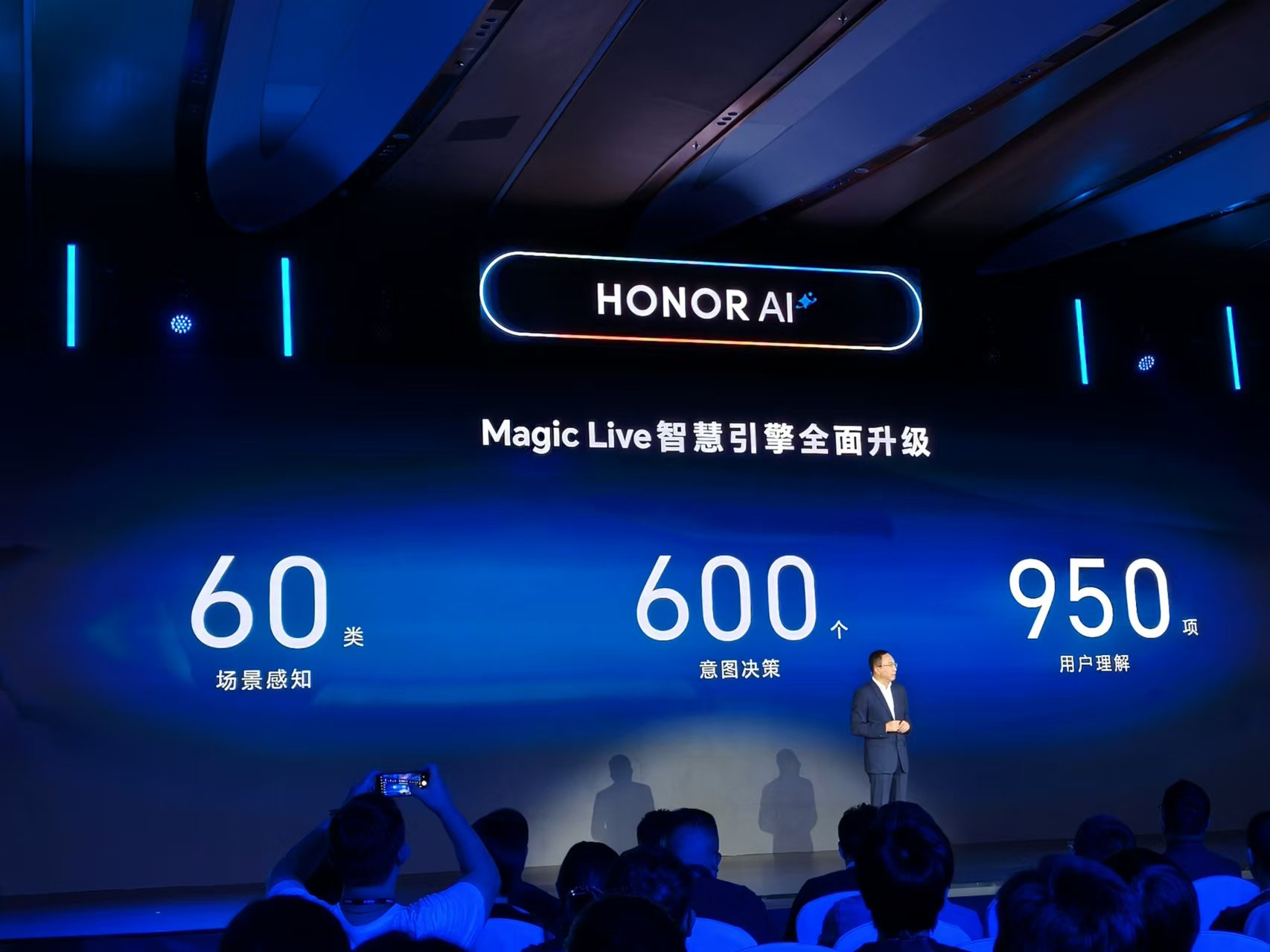
(Image source: LeiTech on-site photography)
The enhancement in underlying parameters and performance naturally leads to a more comfortable user experience.
The most notable change comes from YOYO Assistant. At the launch event, Honor CEO Zhao Ming said to YOYO Assistant, 'Order a drink, I'm a bit sleepy,' and YOYO immediately opened a food delivery app, selected a coffee drink from a specific store, added it to the cart, and waited for checkout confirmation. The entire process was seamless, requiring no manual confirmation or modification from the user.
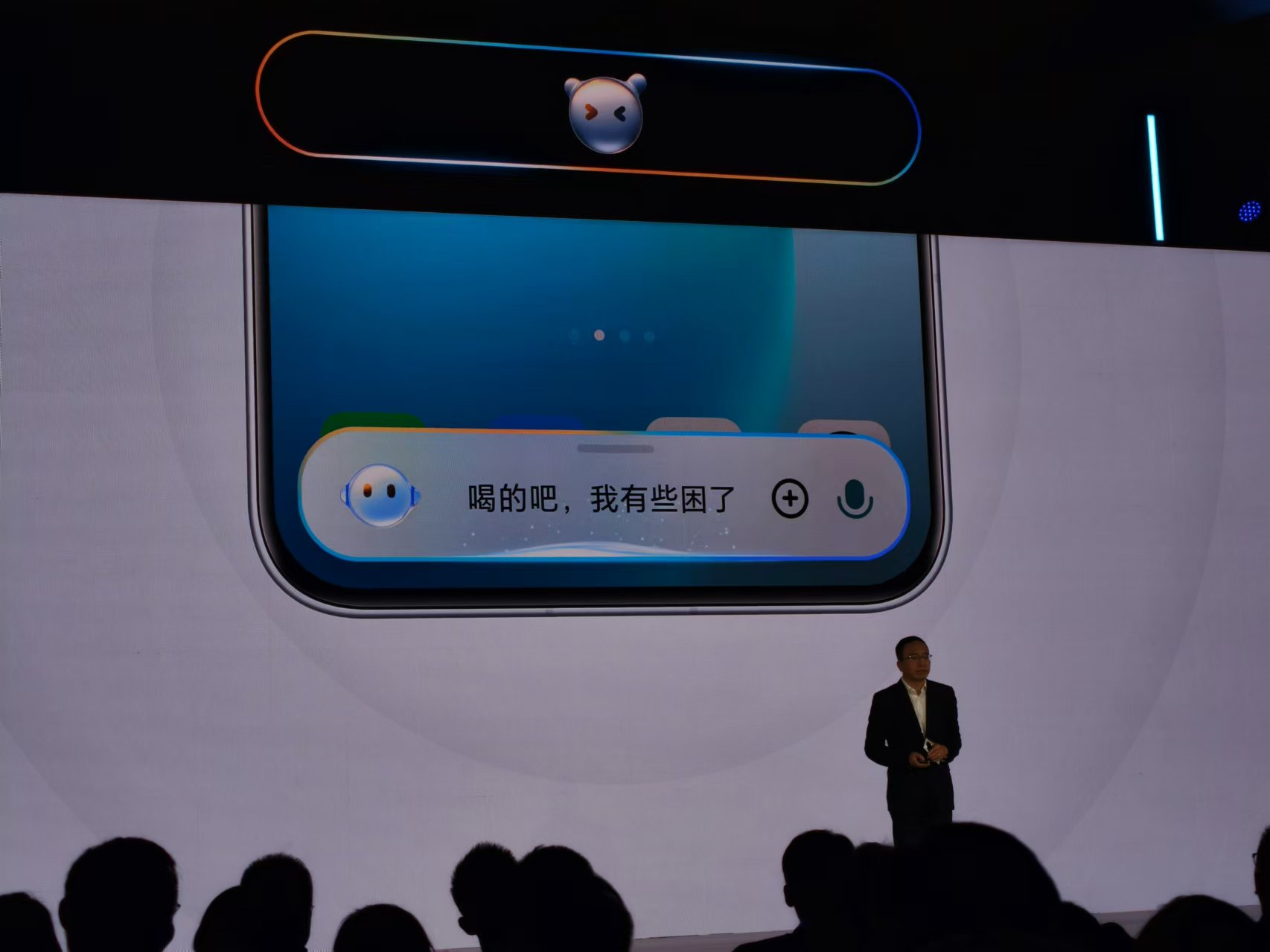
(Image source: LeiTech on-site photography)
We can analyze YOYO Assistant's decision-making process. First, YOYO uses the large language model to understand the user's command, recognizing the need for a drink rather than a meal. Second, selecting which app to open and which store to choose involves decisions based on the user's long-term habits through the Magic Large Models. Lastly, and more crucially, deep intent understanding comes into play. Since Zhao Ming expressed a personal need for 'a bit of coffee to stay awake,' YOYO chose coffee over milk tea.
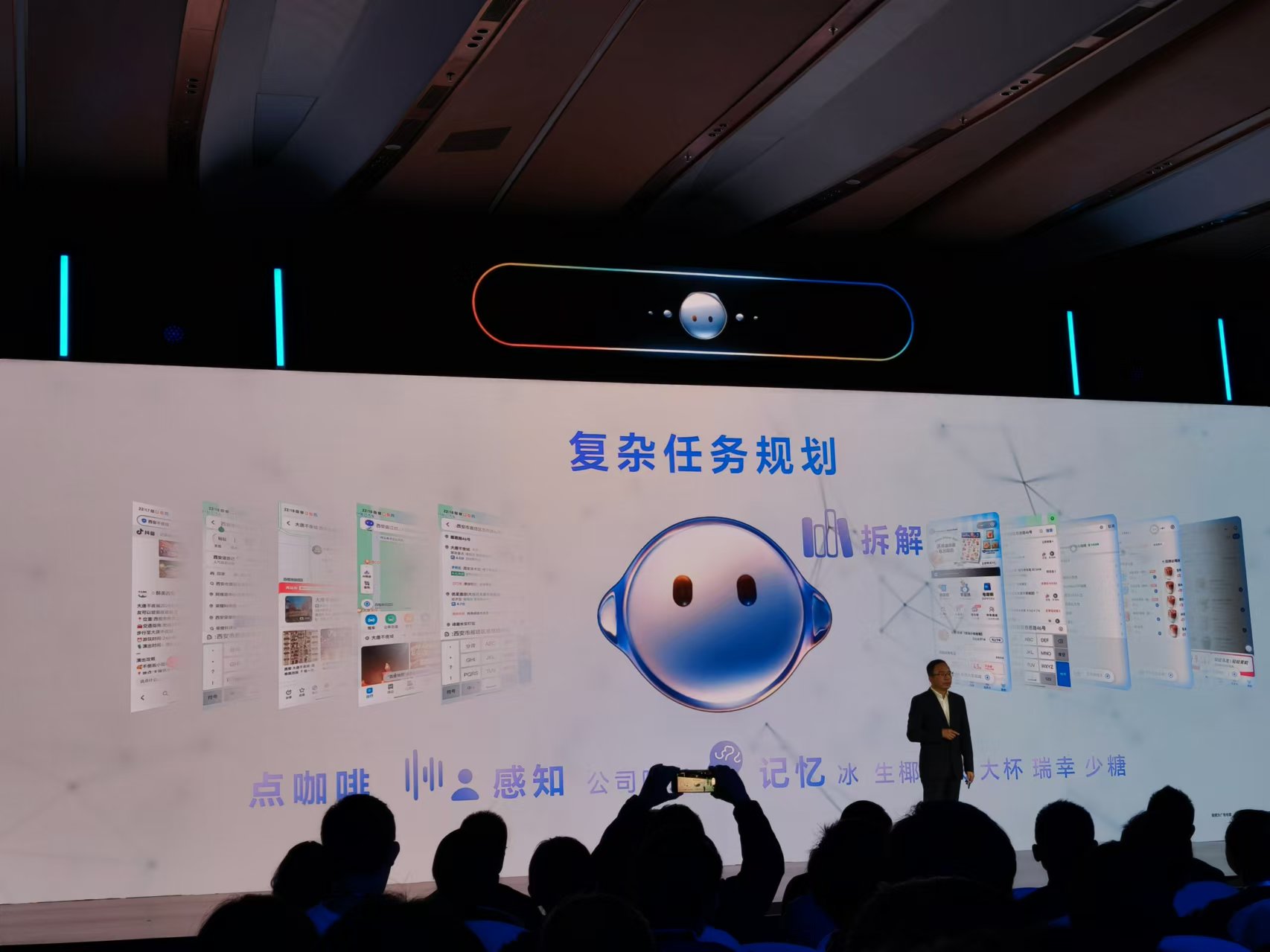
(Image source: LeiTech on-site photography)
YOYO Assistant operates purely through AI vision, requiring no third-party adaptation. Additionally, it's equipped with obstacle avoidance algorithms to handle ads, pop-ups, and unnecessary options, ensuring tasks are not interrupted by such distractions.
If we're talking about hands-free capabilities, YOYO Assistant can do more than just order food. It supports a resident mode, with the first function being online intelligent form filling. What's the significance of this feature? Many public museums, scenic spots, and even education systems now require real-name registration for bookings, necessitating personal information entry for each reservation. YOYO Assistant can quickly fill in personal details upon selecting the page, giving users an edge in ticket booking speed.
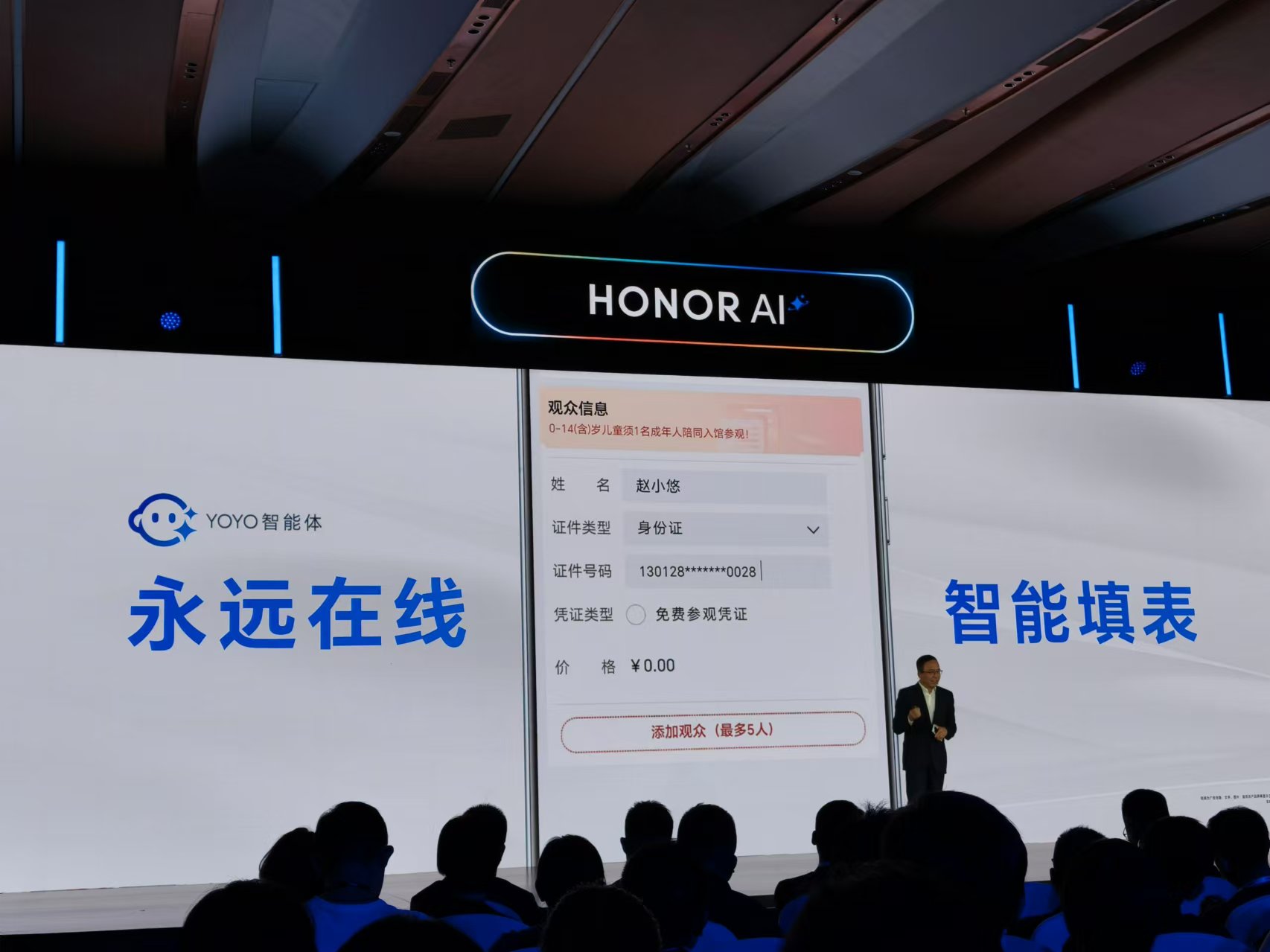
(Image source: LeiTech on-site photography)
Magic Gate and Smart Capsule, Enhanced AI Functions
Perhaps the most innovative features of MagicOS 8.0 were Magic Gate and Smart Capsule. Magic Gate bridges third-party apps, allowing users to switch between platforms more efficiently, while Smart Capsule presents real-time activities in an intuitive and user-friendly manner.
MagicOS 9.0 brings significant upgrades to these two features.
Magic Gate is now AI-powered, introducing a new 'Smart Circle' interaction mode. As the name suggests, it quickly summarizes, cross-platform searches, or directly provides relevant information when users circle specific information. For instance, if someone sends you a full day's activity schedule, using Magic Gate's Smart Circle feature, you can drag and drop it into your calendar app, which will organize your activities and transportation for each time slot, creating a comprehensive plan.
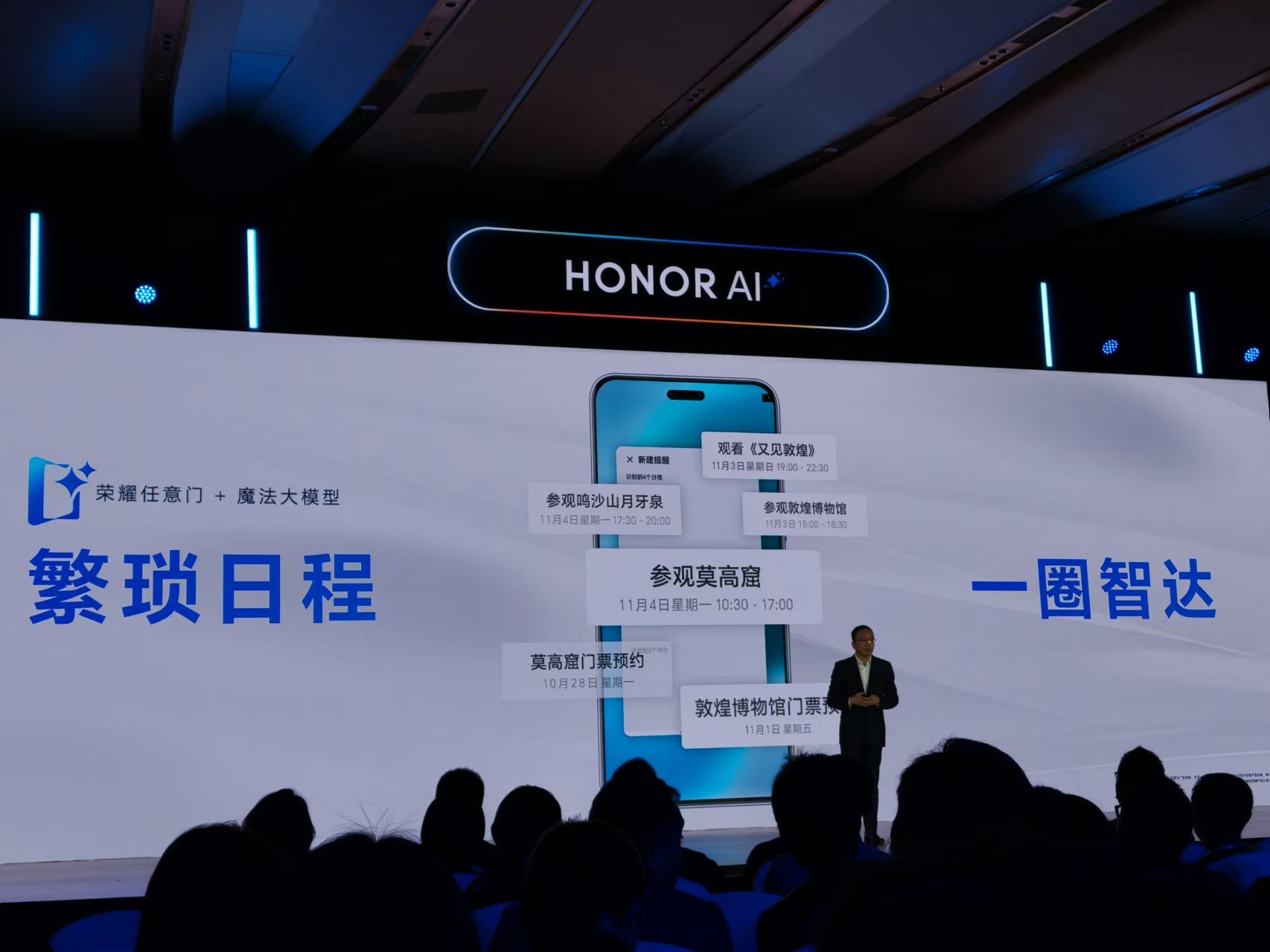
(Image source: LeiTech on-site photography)
When encountering unfamiliar animals or plants, you can take a photo and use Smart Circle to search for information. Similarly, if you're shopping and want to compare online prices, Smart Circle can do that too. Thanks to the openness of the Magic Large Models, Smart Circle excels in retrieving results from multiple shopping platforms, giving users the opportunity to compare prices.
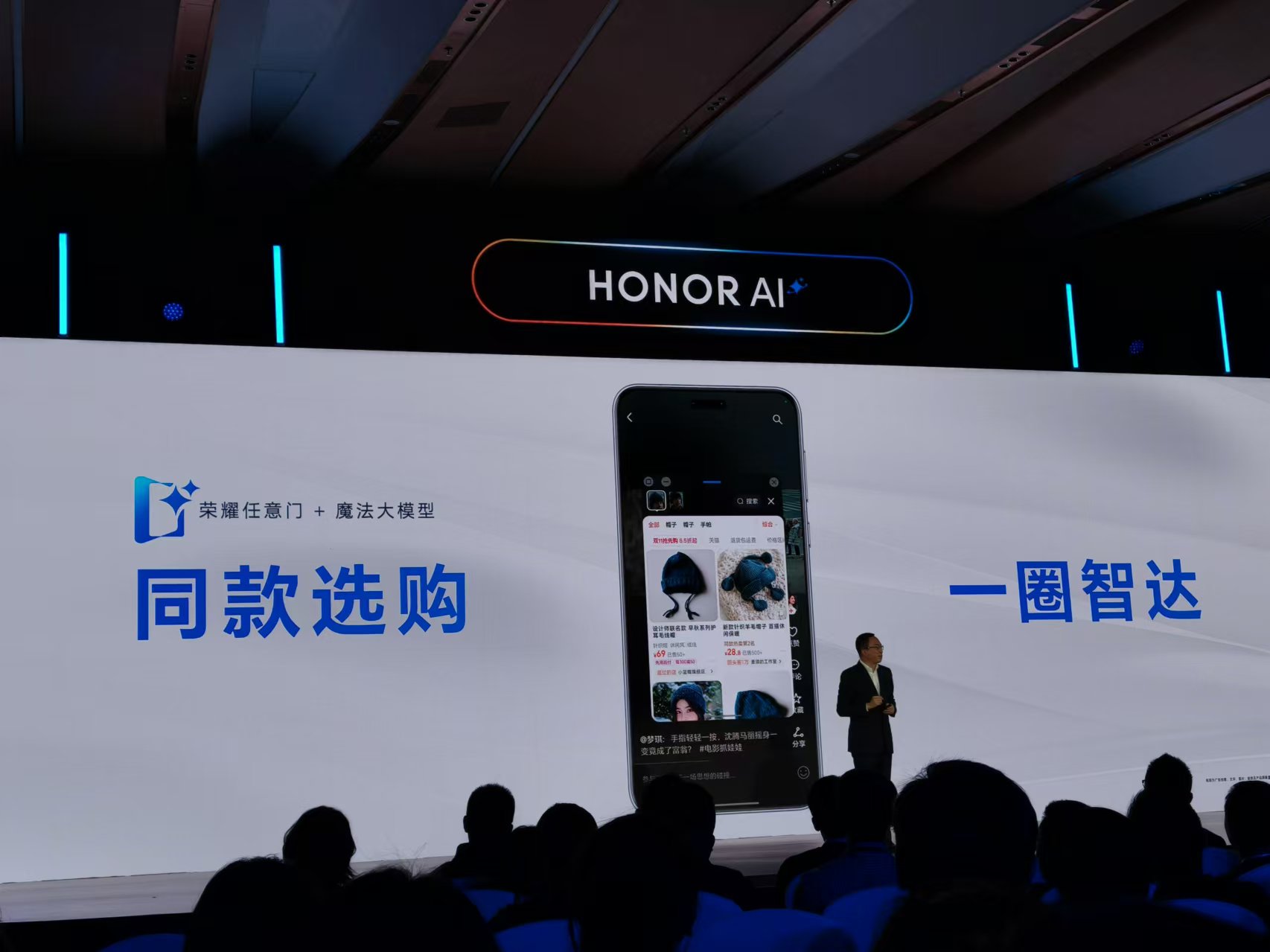
(Image source: LeiTech on-site photography)
Based on the deep evolution of the large vision model, Smart Circle can even search for corresponding TV shows or movies based on plot summaries.
Smart Capsule's primary upgrade lies in its integration of more real-time updates, such as weather alerts and medical appointment reminders. It can display up to six real-time updates, with more applications expected to be integrated in the future, enhancing user convenience.
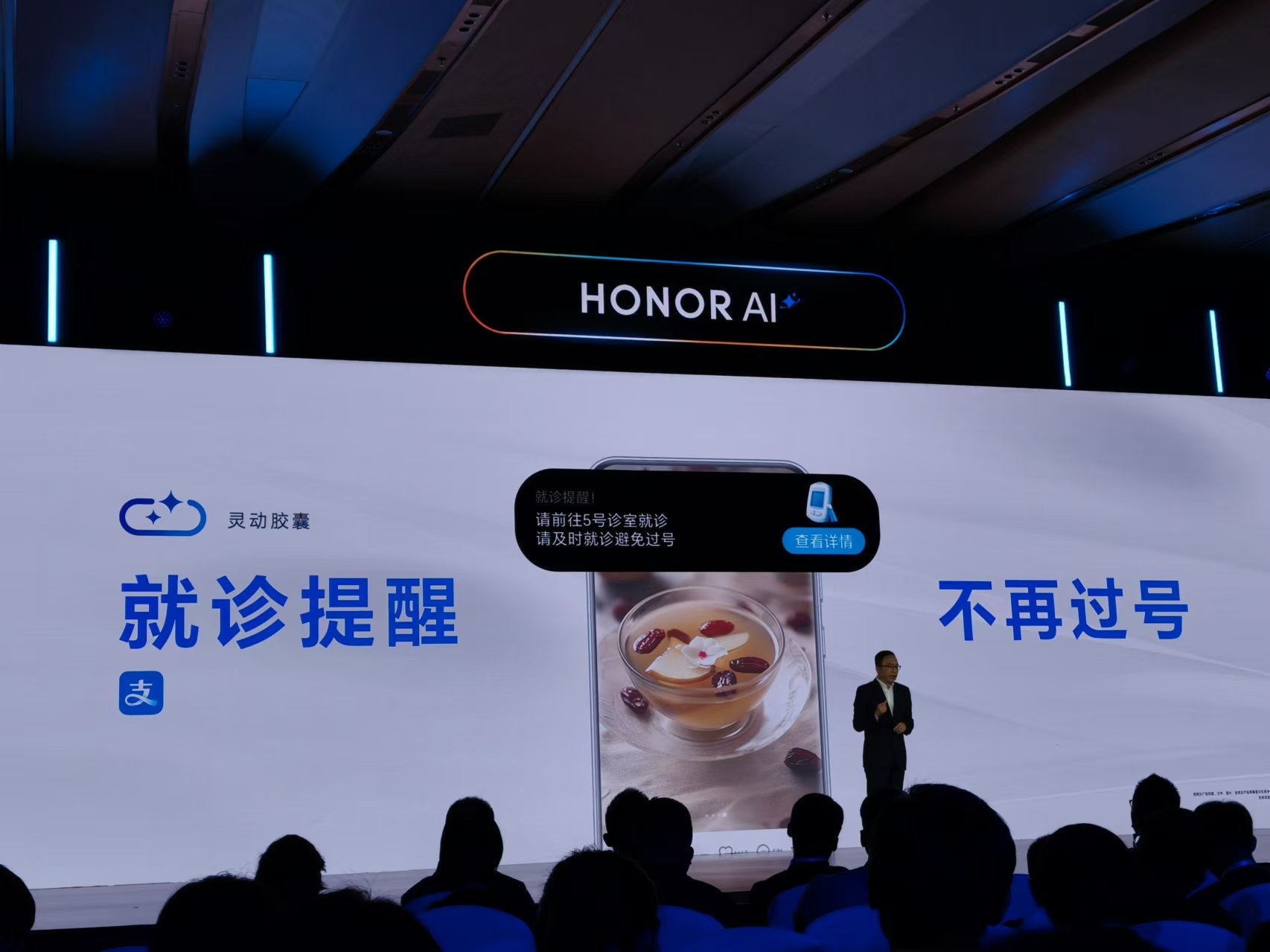
(Image source: LeiTech on-site photography)
Honor's ability to attract over 35,000 ecosystem partners and distribute over 2 billion services daily in just a year is largely due to MagicOS's open attitude towards third-party applications and services. MagicOS's global interaction entry points, including Smart Capsule and Magic Gate, are open to developers, enabling more applications with large model ecosystems to collaborate with Honor's Magic Large Models.
For example, by saying 'I want to top up my phone credit' to YOYO Assistant, the Magic Large Models on the device side will understand the request, open the corresponding carrier app, and navigate to the relevant voice interface. On the third-party large model side, the user's intent is interpreted, such as navigating to the top-up interface for phone credit.
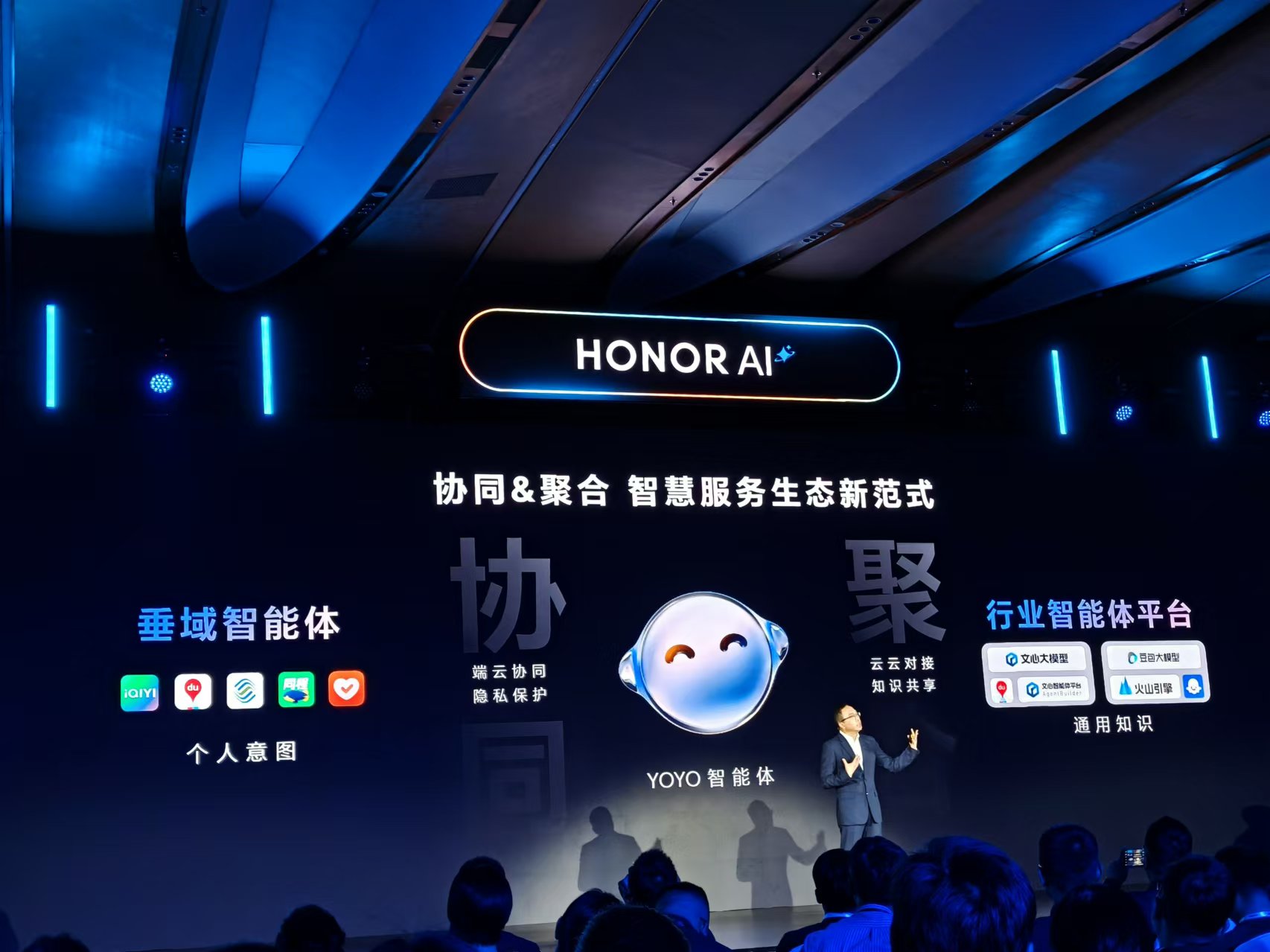
(Image source: LeiTech on-site photography)
Apart from these AI features, MagicOS 9.0 also introduces new AI Gallery, AI Documents, and AI Notes. However, these AI application upgrades don't significantly differ from those of other manufacturers.
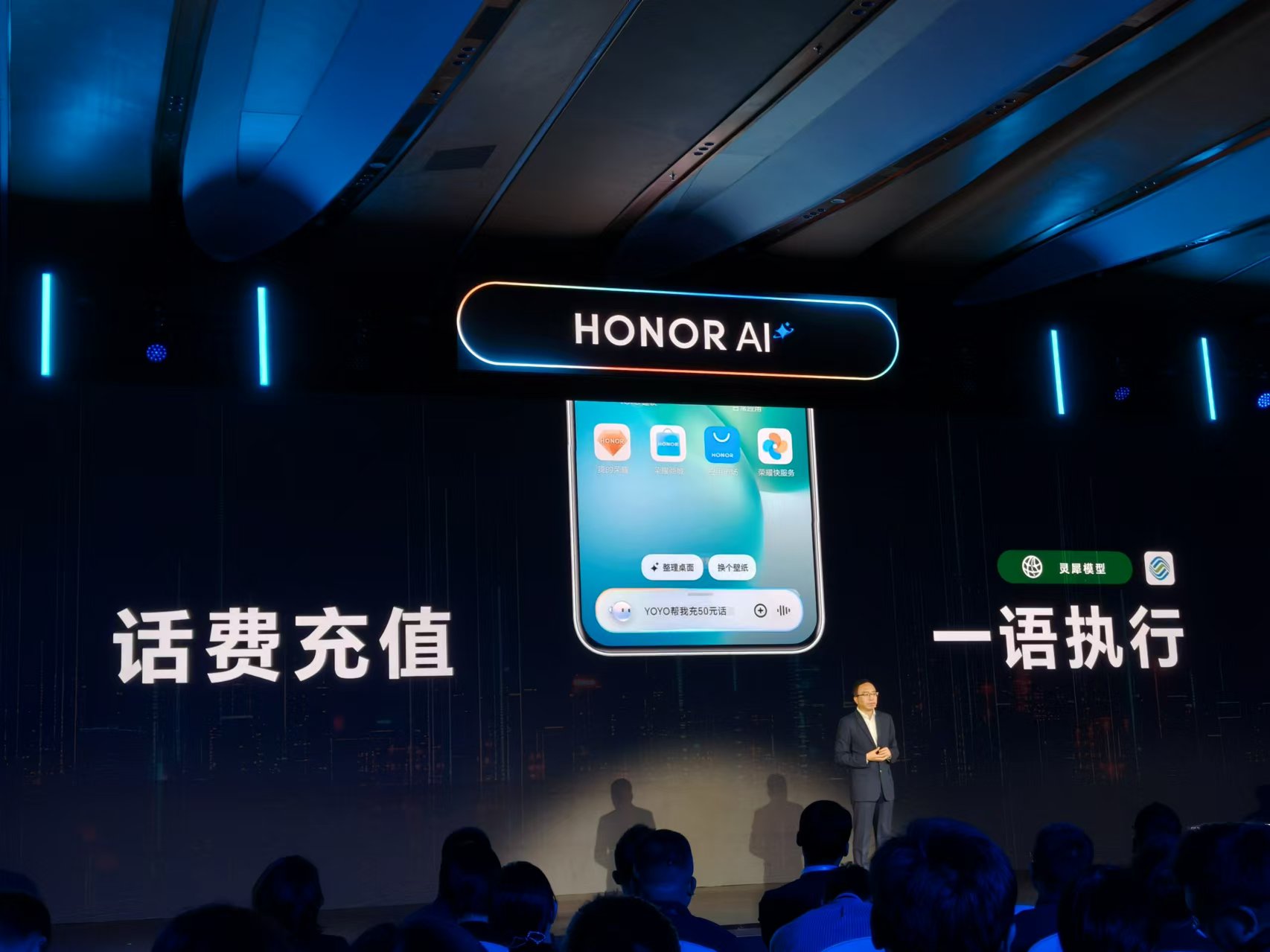
(Image source: LeiTech on-site photography)
In essence, the core concept of MagicOS 9.0 remains 'the more you use it, the more it understands you.' All the AI features mentioned earlier are tailored to users' individual habits. For instance, MagicOS can adjust your exercise plan based on your sleep quality. If you didn't sleep well the night before, the plan will prioritize relaxation over heavy workouts. This explains why Honor's AIOS achieves L3 level – it's a personalized AI tailored to each user, not a generic one.
Is AI-driven Smoothness the Core of MagicOS?
With the addition of numerous AI features in MagicOS 9.0, there's a risk of inefficient system resource utilization. So, how does Honor tackle this issue?
The answer lies in AI.
Honor introduces the Vulkan graphics engine for the first time in MagicOS 9.0. Those familiar with this API know it offers high performance, low CPU power consumption, and low latency. Its most noticeable impact is on image loading speed. At the launch event, Zhao Ming compared the image gallery loading speed of a MagicOS 9.0-equipped device with a regular Android device, and the former clearly outperformed.
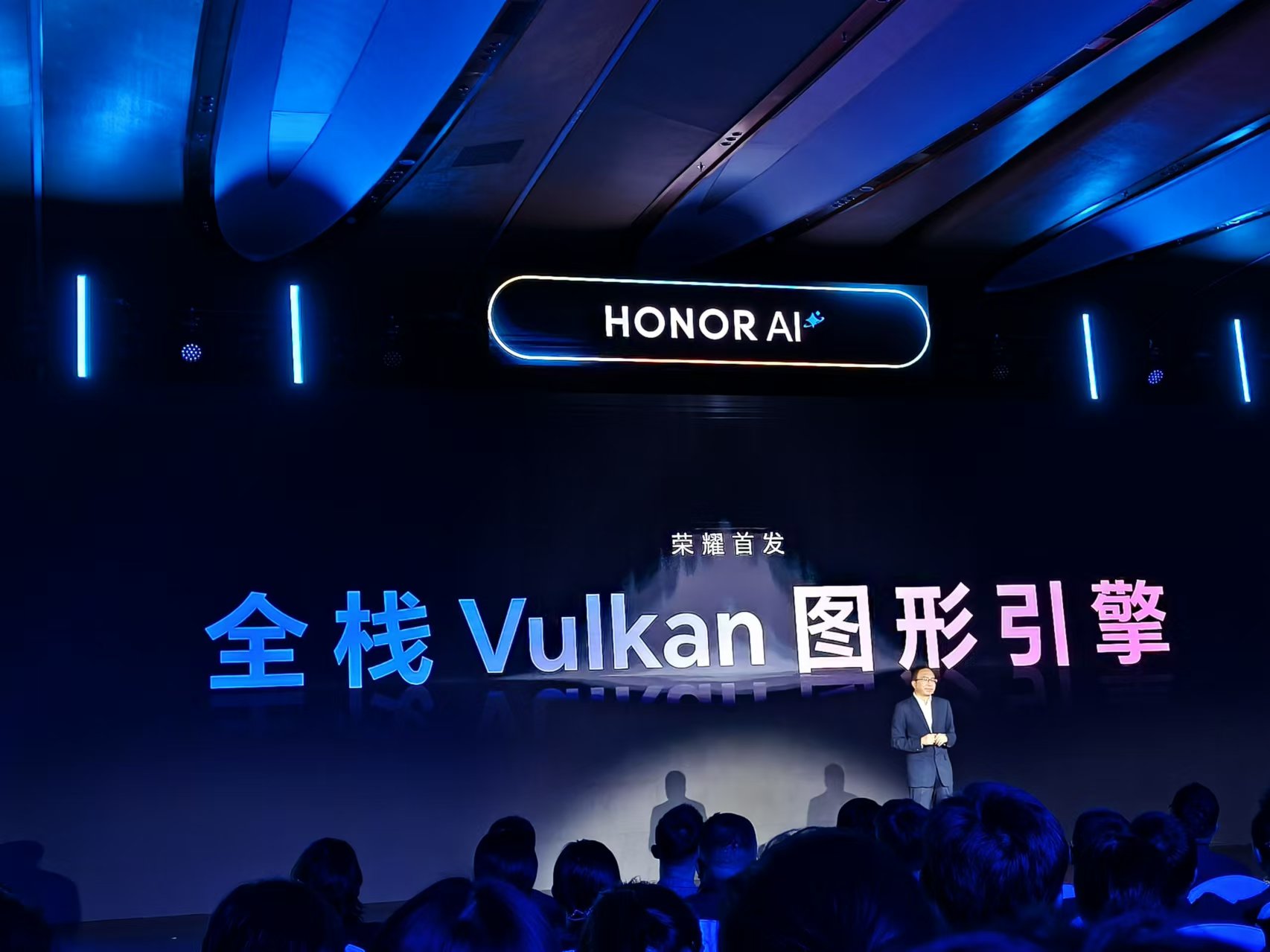
(Image source: LeiTech on-site photography)
Thanks to the Vulkan graphics engine, MagicOS 9.0 loads 100,000 images almost as fast as iOS. This revolutionizes the history of slow image loading on Android systems.

(Image source: LeiTech on-site photography)
Certainly, MagicOS 9.0's unified rendering feature enables it to outperform the iPhone 16 Pro Max running iOS 18 in battery life when browsing small windows on large screens. However, the comparison is made with the yet-to-be-released Honor Magic 7 Pro, so we'll have to wait until the end of the month for the official launch to verify its battery performance.
(Image source: Lei Technology live shooting)
Honor also premiered the AI predictive scheduling engine on MagicOS 9.0. In layman's terms, this engine can learn your usage habits through a large model, make pre-adjustments before resource loading, reduce instant power consumption, and thereby reduce the stress on the CPU/GPU in daily use.
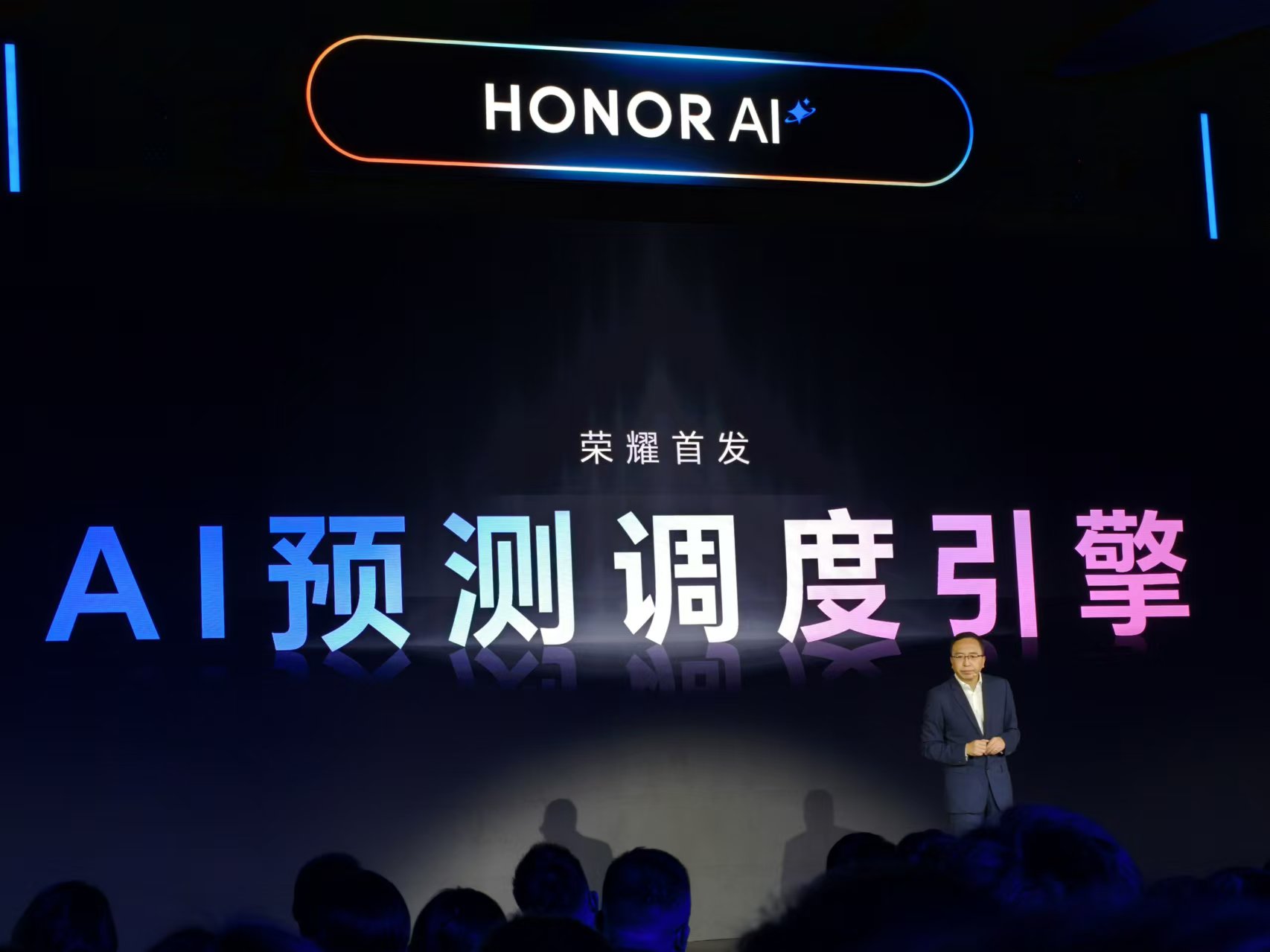
(Image source: Lei Technology live shooting)
MagicOS 9.0 has also revised the overall animation effects, introducing personalized lock screens and brand new icon styles. Additionally, the Honor Digital Person feature will debut on the Magic7 Pro, which will come pre-installed with MagicOS 9.0. The Honor Digital Person is a virtual avatar that users can freely design, capable of making movements and changing scenes based on your behavior and perception. For example, when you have a package ready for delivery, it will transform into a scene of receiving the package.
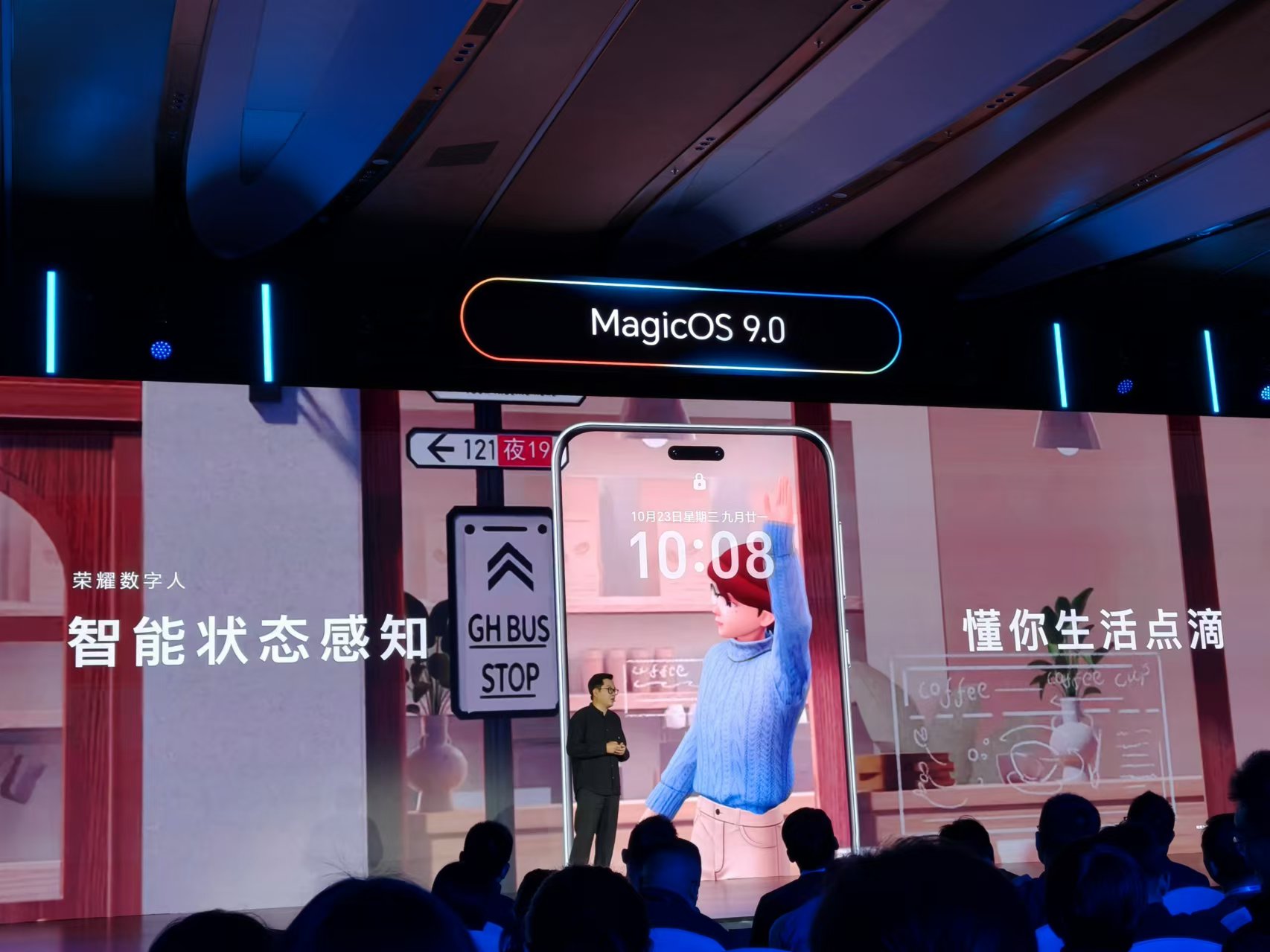
(Image source: Lei Technology live shooting)
Furthermore, when you set the Honor Digital Person as your lock screen, it will respond to you with different expressions and gazes every time you unlock your device.
MagicOS has always been the smoothest among customized Android systems. After deeply integrating with the Magic Large Model earlier this year, it has not become sluggish due to the systematic integration of AI features. Now that Honor is attempting to use AI to intervene in system-level resource scheduling, it should bring users a unique experience.
Truly 'personalized' OS, the era of AIOS has officially arrived
As usual, let's first take a look at the upgrade plan for MagicOS 9.0:
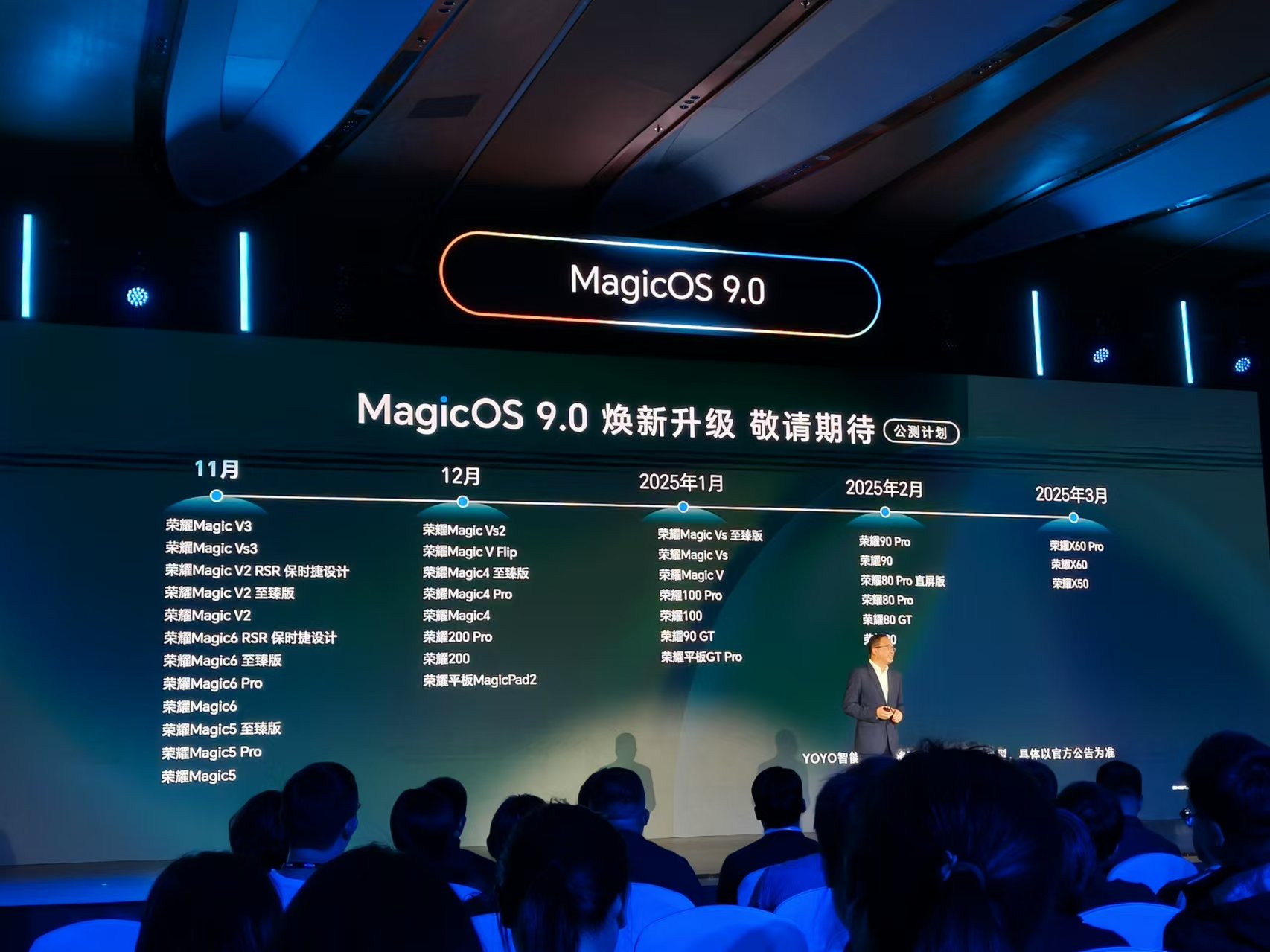
(Image source: Lei Technology live shooting)
It is not difficult to see that Honor's adaptation speed is quite fast. Basically, models released after the Magic4 series can be adapted by this year, and popular models will gradually be upgraded by March next year. Of course, the most important thing is the upcoming Magic7 series, which will be released on October 30th. Lei Technology will also be on site to bring you first-hand reports.
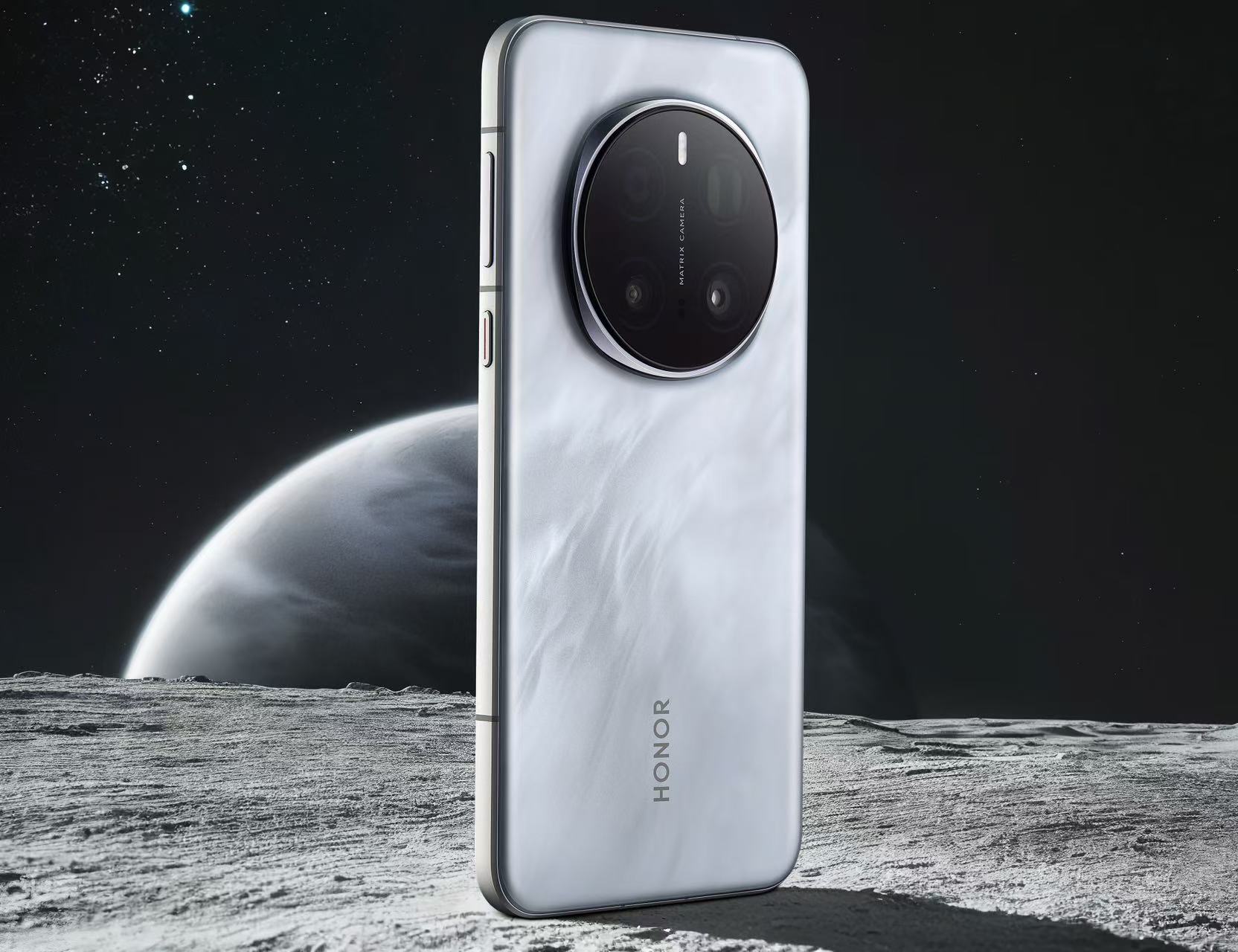
(Image source: Honor)
The release of MagicOS 9.0 symbolizes the official entry of AIOS into the next era, an era of personalized, all-scenario AI. From Magic Live to MagicOS 9.0, Honor's system has evolved from intelligence to AI, and now to a personalized, all-scenario AI operating system. This step-by-step evolution is actually a microcosm of China's mobile AI operating system. We are also looking forward to seeing what changes the future AIOS will bring and what surprises it will offer us.
Source: Lei Technology








